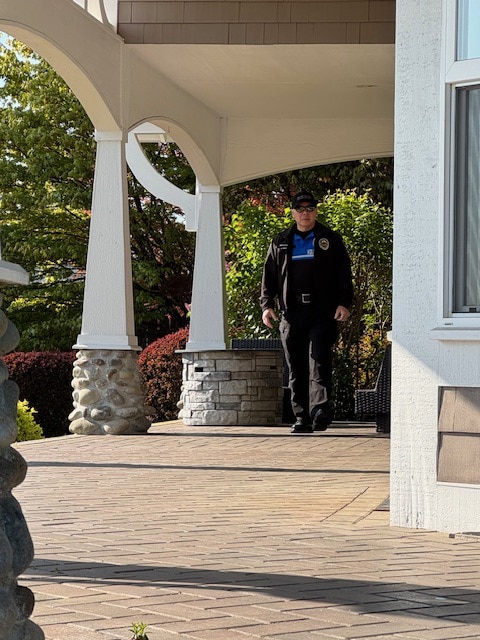Community Government Police & Fire
COPS volunteers a force multiplier for Gig Harbor police
When a crime is committed, and police collect evidence, someone has to log that evidence and take it to a laboratory.
Delivery of evidence to the lab is a crucial role of the six volunteers who make up the Gig Harbor Police Department’s Citizens Offering Police Support program. The volunteers support GHPD’s 23 career officers and help with a variety of tasks that would otherwise take officers away from their main duties, said Chief Kelly Busey.
Busey said the team is imperative to the operation of the department. It serves as a force multiplier.
“They make our department,” Busey said this week. National Volunteer Appreciation Week was April 20-26. “Anything they are asked to do, they nail it. They do what our officers can’t do, and they do it with a smile.”
Meet the volunteers
Ed Meyer has volunteered with the COPS program for 13 years, and volunteered with Pierce County Search and Rescue before that. When he learned about the GHPD volunteer program, he knew it would be a good fit.
“I was in the military for 30 years, and I was a coach, so it’s in my blood to give back to the community that I’m living in,” Meyer said. “It’s an opportunity to connect with the public. I have a lot of people tell me they appreciate what we do.”

Gig Harbor Police Department COPS volunteer John Witt performs a vacation check on a home. Photo courtesy of Ed Meyer
Tim Jones volunteers part time, because he and his wife now spend winters in Arizona. He said being part of COPS has been a positive experience.
Jones came to COPS with prior experience volunteering with a police department in California. He found his place being part of the GHPD.
“People here appreciate us,” he said. “From the officers, and staff, to the public. I didn’t have to fight to be accepted here.”
What they do
When officers collect evidence from a crime, it first comes into the department and goes to an evidence technician. If the evidence needs to go to a lab, the department puts out a text for an available volunteer.
Depending on what kind of evidence it is, the lab could be in a variety of locations.
Blood specimens that need a toxicology test go to a lab in Seattle. A lab in Olympia handles fingerprints, while DNA evidence goes to the lab in Tacoma.
“I’ve driven to Olympia and then to Seattle to drop off evidence to labs in one day,” Meyer said.
Having volunteers available to deliver evidence to labs allows commissioned officers to focus on other duties, Busey said. Duties volunteers cannot do, like making arrests.
Volunteers perform a long list of other duties. While they can’t engage with a suspect or arrest anyone, they can be eyes and ears for officers.
“I was at an event-in-progress,” Meyer said. “I had gone to Cushman Trail to retrieve the SD card from the camera there at the parking lot, and I noticed a vehicle that had previously been identified as belonging to someone who was breaking into cars there. I had a radio with me, and radioed in the vehicle, and police showed up and brought the guy in for questioning.”
Visible volunteers
COPS volunteers can write tickets for vehicles illegally parked in disabled parking spots, Busey said. Meyer said he has issued 60 tickets for that this year.
COPS wear uniforms and drive vehicles that clearly mark them as volunteers. For now, that vehicle is an old Ford Crown Victoria. Busey said the department is getting a new Ford Maverick Hybrid pickup in the next couple of months, and a regular patrol car will be handed down to the volunteers soon.
The volunteers are frequently seen at public events in the city, including the Summer Sounds at Skansie concert series, Maritime Gig Parade, the Halloween trick or treat event, and car shows.
“I think people appreciate seeing us out there,” Jones said. “We patrol the concerts, and people park at the dock. Sometimes they have questions about what they are allowed to do.”
COPS volunteers must be at least 18 years old, fill out an application, and pass an interview with volunteers and a career officer. The approval process can take two months or more, Meyer said, followed by an orientation and training program.
Busey said not everyone gets approved. Some don’t make it past the oral interview.
“We don’t advertise for them,” Busey said. “The right people find us.”
